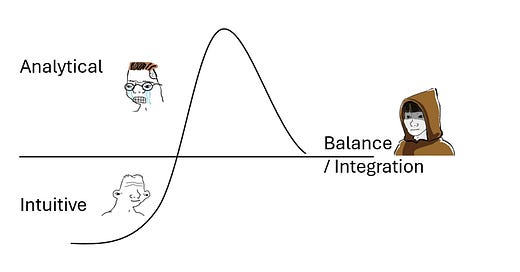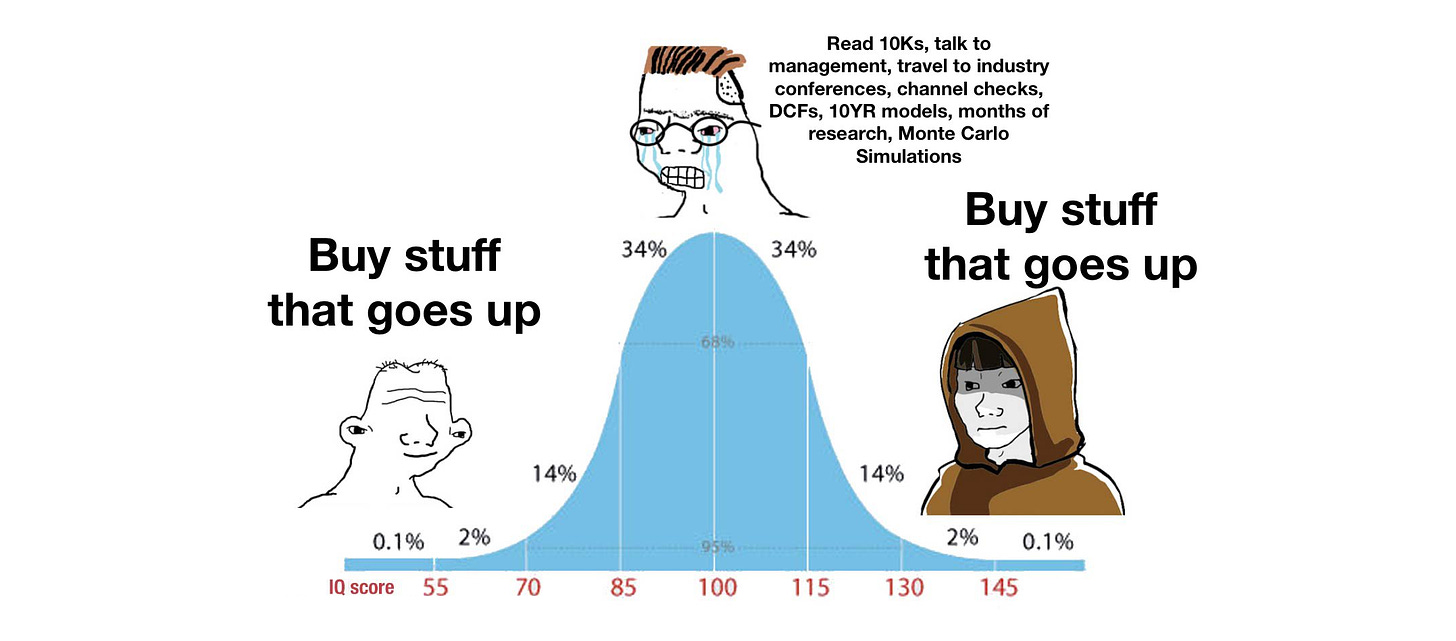The Meme Every Investor Needs to Grasp
Why the path from Midwit to Jedi leads through a valley of anti-intuition.
How do legends of the money game make their decisions? Do they see a situation and instantly know the right move, or do they deliberate and ponder every possible angle? Both? It depends?
Having worked around humans in the investment business, it often feels like people make a snap judgment — upon meeting a founder, seeing a chart, hearing the first seconds of a pitch — and then spend days, weeks, or even months justifying what their unconscious has already decided.
I believe we were granted a rare and unintentionally honest glance at this when Stanley Druckenmiller recently explained his investment in Argentina. “I saw [Javier Milei’s] speech in Davos,” he said, “and … dialed up Perplexity. ‘Give me the five most liquid ADRs in Argentina.’” After skimming the AI search results, he followed “the old Soros rule, invest and then investigate. I bought all of them.”
Wait, he did what?
Is this why they say you should never meet your heroes? Or was it just a marketing ploy for Perplexity, in which Druckenmiller is an investor?
“There can be as much value in the blink of an eye as in months of rational analysis,” Malcolm Gladwell wrote in Blink. And yet, have we not been warned over and over again about the danger of trusting intuition? Michael Mauboussin points out that pattern recognition fails even experts often in “complex and evolving environments,” aka markets.
First off, Druckenmiller is a trader. He changes his mind frequently and could quickly exit if the market turned against him or further research discredited the idea. In recent years, he has commented on markets accelerating and requiring more of this kind of “shoot first, ask questions later” approach. In this case, he matched the situation against his mental library of case studies and jumped on the bandwagon as it took off.
I believe the tension between intuition and analysis is perfectly illustrated by the ‘Midwit’ meme — via Brandon Beylo:
The left is the land of action without thought.
“I bought the stock because I like the product.”
“I bought the stock because it’s going up.”
“Roaring Kitty is back, meme stocks are back on.”
“People in the chat like the silly coin, I’m long.”
“This smart dude on CNBC bought Argentina and I like what Milei says, I’m in.”
This is the domain of memetic investing, trend following, and Peter Lynch-style ‘day at the mall’ stock picks.
The middle, on the other hand, is the land of struggle. Here, rational analysis is worshiped and intuition overruled. Here, the conscious mind works hard to out-think the market. Inevitably, this is a wasteland of grinding and frustration.





